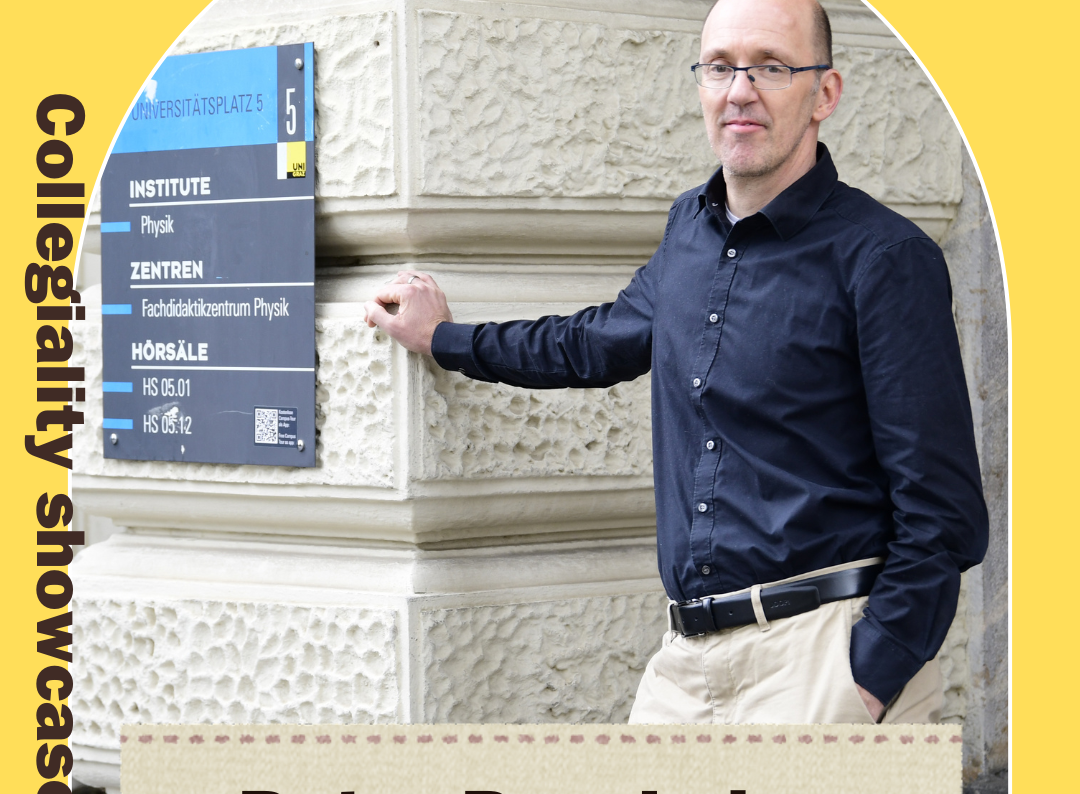The Research Careers Campus Graz showcases people and networks which shape our research environment here in Graz - towards a more collegial, friendly and diverse academia, where all research talents can thrive.
Today, we present Peter Puschnig, professor at the department of Physics. His research focus is electronic structure of nanomaterials, and in May 2025, he received the recognition award for dedicated doctoral supervision from the University of Graz as part of the bi-annual Seraphine Puchleitner Award Ceremony.
Here are his three answers to three questions.
1) What conditions do (younger) researchers at the university need to thrive and develop professionally?
In my experience, young researchers develop best in an environment that combines intellectual freedom with constructive guidance. Three elements are particularly important to me: building on individual strengths, open communication at eye level, and supporting the path toward scientific independence.
Every doctoral researcher brings unique talents to a group. By recognizing and nurturing these strengths, and by assigning responsibilities that allow them to contribute meaningfully to the team, motivation and mutual learning naturally flourish. Equally essential is a respectful, open atmosphere where ideas can be discussed freely and feedback is exchanged honestly. Modern communication tools such as Slack help us maintain this exchange efficiently - both within our group and with external collaborators.
Ultimately, the university should be a place where young scientists are encouraged to grow into independent researchers, capable of developing their own scientific identity and voice.
2) What do you personally get out of your engagement as a mentor and supervisor?
Supervising PhD students is one of the most rewarding aspects of my academic work. It is a privilege to accompany young scientists on their journey toward becoming independent researchers. Their curiosity, creativity, and fresh perspectives constantly inspire me and often open up new avenues of thought for our research group as a whole.
Seeing my students develop confidence in their own ideas - whether it’s through publishing a paper, presenting at a conference, or finding elegant solutions to complex problems—gives me great satisfaction. Mentoring is not a one-way street; it is a dynamic, mutually enriching process that keeps my own scientific thinking alive and evolving.
3) What helped you the most in your own leadership development, and what would you suggest to others who are starting out on their leadership path?
My leadership approach has evolved mainly through experience and continuous reflection. What helped me most was learning to listen carefully, trust people with responsibility, and create space for initiative. Effective leadership in science means guiding without constraining - providing structure where needed, but allowing creativity to unfold.
I also learned the value of constructive feedback and of fostering a culture of mutual respect. Regular discussions - both formal and informal - are indispensable for understanding what motivates each member of the group and how we can best support one another.
For those starting out in leadership roles, I would suggest: stay curious about people as much as about science. Encourage diversity of thought, be transparent in your communication, and remember that your role is not only to lead research, but to help others grow into confident, independent scientists.
Thanks a lot, Peter Puschnig, for giving us this insight, and for the great collaboration always!
Interview: Johanna Stadlbauer, RCC, 06.10.2025
Picture credit: Uni Graz / Communications
